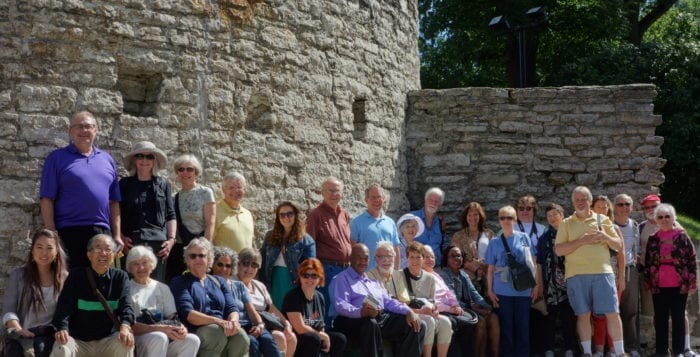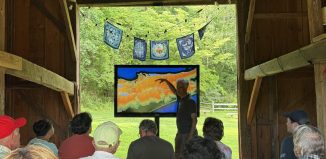Your Turn: LISCA tours the Baltic states

This past July, singers from the Long Island Symphonic Choral Association “took to the skies” for the ninth time in their illustrious, 50-year history as a community chorus, bound this time for an eight-day performing and sight-seeing tour of three Baltic countries.
LISCA’S conductor, Thomas Schmidt, shared his reflections and impressions of the trip. “LISCA’s tour of the Baltic states was filled with surprises. Most of us weren’t even clear on where Lithuania, Latvia and Estonia were when we left from JFK. Was Lithuania the northernmost one? Well no, it’s the southernmost one, bordering Poland and Belarus, with Latvia to the north and Estonia even further north, across the Baltic Sea from Finland.
Lithuania is mostly Catholic, whereas Latvia and Estonia are mostly Lutheran, although few practice any religion. Russians are still a large percentage of the area’s population, as much as 40 percent, although even now few of them are citizens. For most of their histories these three little countries have been ruled by other countries, Germany, Sweden, Poland and Russia.
But one of the major ways that they retained their sense of identity was through their choral tradition. Every four to five years there are gigantic choral festivals in each country, with singers dressed in their traditional, regional costumes. We saw the outdoor festival theater in Tallinn which overlooks the Baltic Sea. The stage has room for a mass choir of 20,000 and the audiences number in the hundreds of thousands. The festivals were a major way these countries maintained their unique cultures, languages and civic pride during times of foreign occupation.
So, it was not a surprise that LISCA’s concerts, held in the old 1799 City Hall in Vilnius, the 12th century, Gothic St. Peter’s Church in Riga, and the equally ancient St. Nicholas Church in Tallinn were received enthusiastically by full houses of educated listeners.
Each concert was dedicated to the memory of LISCA’s founder, Gregg Smith, who died at the age of 84 after a long illness on the morning we departed for the tour. The audience was told about his long career as one of America’s leading composers and choral conductors. Each concert ended by singing his hauntingly beautiful canon, ‘Now I Walk in Beauty.’”
The overwhelming concensus of those singers who ventured to travel to this unique part of the globe was unqualified satisfaction and enthusiasm. The people were warm and welcoming, the medieval buildings stunning and beautifully preserved, vitality blossoming everywhere. Independent since the Soviets left in 1991, these countries are finding their paths to flourish in the global economy and yet retain their national pride and cultural heritage.
LISCA’s singers are presently preparing for their annual winter concert to be held on Saturday, Dec. 10 at 8 p.m. at the St. James Roman Catholic Church located at 429 Route 25A in Setauket. The program features Anton Bruckner’s “Mass in E Minor,” a beautiful but challenging and infrequently performed choral work accompanied by wind and brass instruments. It has been called “a work without parallel in either 19th or 20th century church music.” A Christmas Motet by Poulenc, two Gabrieli works with brass accompaniment and carols by Gregg Smith will complete the program.
Tickets are $25 for general admission, $20 for seniors and free for students. For further information please call 631-751-2743 or 631-941-9431.






